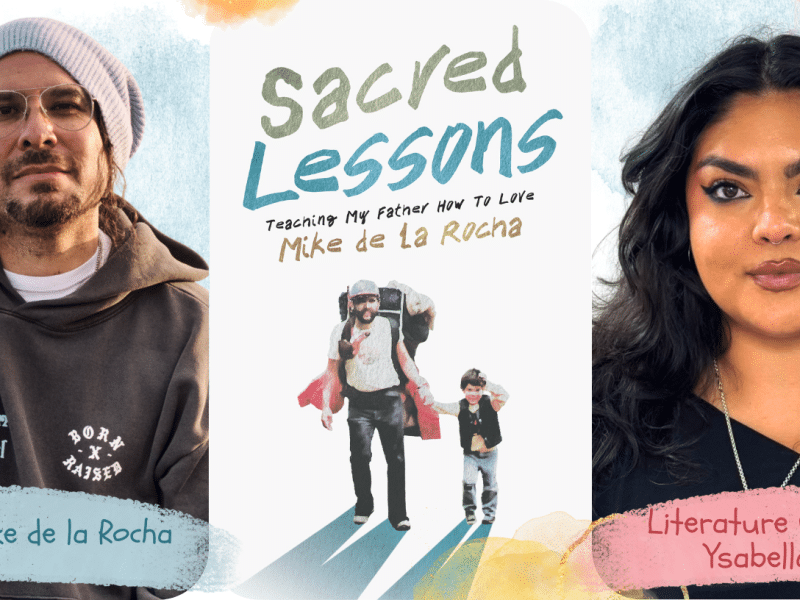Lido Pimienta: A Global Music Sensation on a Social Justice Quest
Lido Pimienta had major promotional plans this year for “Miss Colombia”—the widely acclaimed album she released in April—but everything changed when the pandemic suddenly turned the entire world upside down.

“When you’re not white, you see the world differently, when I’m writing my songs, I feel like this is our everyday lives, this is our everyday pain.”
Lido Pimienta had major promotional plans this year for “Miss Colombia”—the widely acclaimed album she released in April—but everything changed when the pandemic suddenly turned the entire world upside down.
“It was scary in the beginning—it was like oh great, I just released an album, oh the tour got canceled,” Pimienta told Luz Collective in a recent phone interview. “But when you see the devastation and the injustice around the world, I’m nothing, I’m just another grain of salt. So I just feel really blessed, and that is motivating me to continue to do work.”
“Where my family’s from, you don’t have water every single day—or electricity even, every single day—so that just adds so much more drama to an already dramatic situation,” Pimienta said. “And in Colombia right now, we have a very complicated political present, I’m not talking about the past, I’m talking about the now—the now that is a result of years of civil war, years of corruption.”
Pimienta said that the pandemic has heightened her frustration with government and corporate “impotencia,” so she has taken matters into her own hands by creating GoFundMe campaigns to raise money for people in need. She launched the first fundraiser in April and generated $6000 to send groceries to Colombian families in La Guajira—the Indigenous-inhabited area where Pimienta’s family is from—and Palenque, which is largely populated by Afro-Colombians since it was the first historical town established for freed slaves during colonial times.
“I honestly thought [the pandemic] was only gonna be six months, and I was like, so with $1000 dollars a month, I can send enough groceries to 40 families in Colombia because it stretches for a lot,” Pimienta said. “And I’ve been doing it, but people are still hungry, people are still in need, so many girls that are pregnant can’t even leave their villages, so they don’t have clothes for their babies,” she said.
The singer of mixed Afro-Colombian and Wayuu ancestry has consequently launched a second GoFundMe effort to collect $20,000 for Colombia’s most marginalized. The money will continue to provide groceries for families, but it will also be used to stock essential items like baby clothes, medicine, emergency supplies, and many other necessities.
“I have to be a little more aggressive because things are getting out of hand, Colombia is going through it right now,” Pimienta said.
Additional efforts from the Polaris Music Prize winner include raising awareness about mass crime and violence afflicting Colombia, such as the recent massacres in August that targeted young people between the ages of 12 and 25. On August 30, Pimienta performed alongside other artists as part of a collective called Un Canto X Colombia for the Hasta Que Amemos La Vida live streamed concert to call for peace and bring international attention to the violence in Colombia.
“Anything that can add to our collective rage, I’m all about it,” Pimienta said.
And Pimienta is no stranger to channeling pain and anger in her creative projects, especially when it comes to her music. “When you’re an artist, you’re always releasing some pain—when you’re an artist, there’s a part of you that is constantly suffering,” she said.
The “Eso Que Tu Haces” singer revealed that she’s never been one to write “happy” songs because she tends to write about critical experiences that have shaped her ideologies and that also continue to impact those closest to her. “Miss Colombia” for example, addresses gender, race, politics, and identity issues, including Indigenous struggles.
“My family is Indigenous, we’re Wayuu from the north coast in Colombia—we’re a people that are surviving still from being a very strong community,” she said. “The Colombian government is continuing to destroy our people by taking away water and other resources, so I’ve grown up with that, that’s a part of my reality, so that’s just what I sing about.”
And in light of the Black Lives Matter protests that have taken place around the world, Pimienta’s music has resonated more than ever before, particularly “Miss Colombia,” which draws attention to anti-blackness in Colombia and Latin America. Pimienta first started writing the album in 2015, and after sitting on the songs for five years, she finally released it just one month before the international Black Lives Matter movement gained momentum. For Pimienta, it’s not surprising that the songs in the album managed to be relevant to the present state of the world.
“When you’re not white, you see the world differently,” she said. “So when riots happen, when things happen, I feel like they’re bursts of things that are happening where we’re able to see injustice a little more amplified, so when I’m writing my songs … I feel like this is our everyday lives, this is our everyday pain.”
And even though the music speaks to current conversations about race and oppression, Pimienta refuses to have her songs co-opted or undermined by being seen as just part of a current trend. Pimienta said a popular Colombian radio station recently tried to do this by invoking her music and tying it to such fads.
“They were like, ‘Who would have thought that Lido Pimienta was gonna be a worldwide sensation, her music is kind of strange, but it’s working out because she sings about Black issues, and those are very trendy right now,’” Pimienta said. “It’s totally not what I’m about, in September it’s gonna be 10 years of me being in the public eye, so if you look at the things that I was doing even before—when I was 11 years old—I was singing about the same issues.”
The singer-songwriter has clearly spent the majority of her career and the bulk of 2020 concentrating on equity and social justice matters, but as she moves forward, she is redirecting and channeling her energy into new territories that reflect her artistic growth. Pimienta says fans should keep an eye out for a project called “Lido TV,” which she is secretive about and avoids describing. She also shared that she is re-arranging the music of her 2010 debut album, “Color,” for the anniversary reissue later this year. And if that wasn’t enough, she’s also working on a new record inspired by motherhood and what Pimienta calls, “redemption.”
“Because of my baby, she has given me this new outlook and one that is very hopeful—it’s like seeing life through her eyes,” she said. “I feel as though I am entering a different stage of happiness that I usually don’t connect with. Like I said before, I don’t really know how to write happy songs, so this album, I don’t know yet that there’s happy songs, but they definitely are injected with a lot of hope and a lot of beauty.



